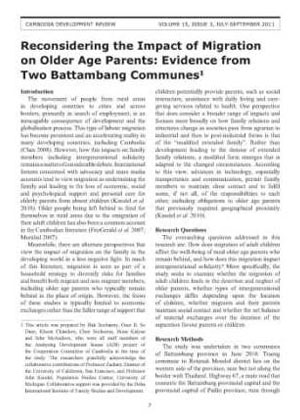Indigenous Response to Depletion in Natural Resources: A Study of Two Stieng Villages in Snoul District, Kratie Province, September 2004
Recent studies undertaken by CIDSE Cambodia in Ratanakiri and Mondulkiri provinces indicate that rapid change has taken place within indigenous communities as a result of Khmer in-migration and the expansion of the market economy. In a study of two Tampuan villages in Ratanakiri province the buying up of indigenous land rights by Khmer people for the cultivation of cash crops and future speculation not only diminished natural resources for sustaining livelihoods, but also debilitated cultural and social resources needed to deal with the exigencies of change itself.1 In a study of two Phnong communes in Mondulkiri province legal and illegal logging, and unregulated hunting and fishing, similarly resulted in a decline of natural resources that undermined indigenous subsistence.
The CIDSE studies indicated that indigenous communities in the two provinces remained highly dependent on natural resources for their livelihoods. The Ratanakiri study revealed that households remained essentially subsistence swidden cultivators who supplemented their livelihoods by gathering, hunting and fishing. The Mondulkiri study pointed out that households depended primarily on forest products, hunting, and trapping and secondarily on cultivating crops to support their livelihoods. In both studies the market economy had not transformed the local residents into entrepreneurs or traders nor had it provided them with remunerative and sustained opportunities in wage work. Indigenous households in the study areas were very much integrated into the market economy. Generally, villagers were eager to participate in market activities and derived benefits from this involvement. The changes brought about by the growth of local markets were not all detrimental to the valued life ways of the indigenous groups. This noted, market forces operating in Ratanakiri and Mondulkiri provinces nonetheless demonstrated the potential to undermine the well-being of indigenous communities. The studies argued that indigenous groups who retained control over land rights and natural resources were in a stronger position to adapt to the rapid and inevitable change, and ensure their subsistence, than those who did not.

































